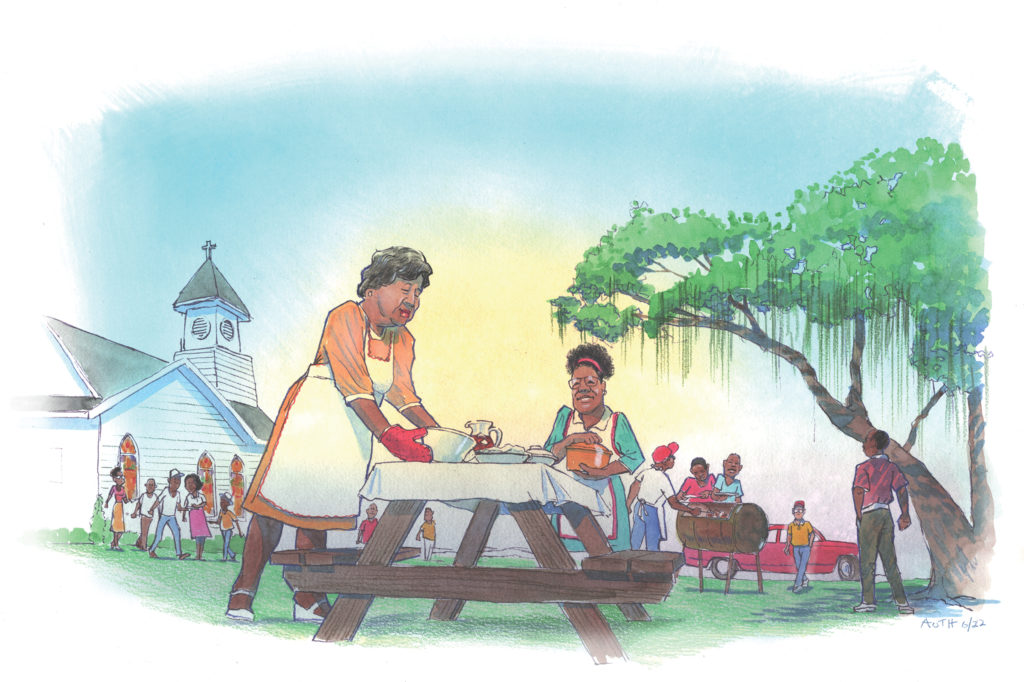
Now I’m not going to get myself into a tussle over barbecue.
For some it is a passionate subject. They even argue over how to spell it — BBQ, barbeque with a “q”, barbecue with a “c,” and such.
They also argue over whether barbecue is a process, as in “gonna barbecue some ribs” or the final product, as in “pass the barbecued ribs,” or both.
Years ago, folks at the U. S. Department of Agriculture tried to clarify things by declaring that for canned or packaged meat to be labeled “barbecue” it had to be “beef or pork in barbecue sauce.”
That should have settled it, but of course it didn’t.
Why?
Because down in Dixie, barbecue is like French wine. Each region has its own.
One taste and you know where you are.
Growing up in Alabama, for us barbecue was mostly beef and pork, with an occasional chicken part thrown on the grill. Out in Texas they grill sausages and bologna, and call it barbecue, which is fine with me. I have even heard of barbecued shrimp.
Then there is the sauce, which is as varied as the meat. Up in the Tennessee Valley they have a “white sauce,” while in South Alabama I grew up with a tomato-based sauce livened up with brown sugar, pepper, vinegar or something else. But not always.
If you want to see barbecue in all its glory, do a search online. Or just stick with what you like.
For many folks, barbecue captures a moment and holds it suspended, waiting to be remembered and enjoyed.
For me, one of those moments came when I was riding through rural Wilcox County. It was a warm summer Sunday morning. Windows down. Suddenly I caught the smell, then I saw the church where under the moss-hung oaks men gathered around a 55-gallon drum that had been converted into a grill.
I stopped.
While the men cooked (or barbecued if you prefer), the women spread out side dishes on tables that been serving this purpose for years. Potato salad, fried okra, corn bread, a feast fit for a king.
A man that I assumed was the preacher seemed to be supervising. So, I approached him and asked “Can I buy a plate”?
He smiled and said, “Come join us.”
I was the only white face there. Not that it mattered. We were church folks and members of the barbecue nation.
When we all were served and seated, the preacher asked the Lord to bless us all. And when I bit into my ribs, I knew He had.
With dinner done (not lunch, dinner), the men sat together and I sat with them. The women cleaned up and the teenagers (there were some there) carried off the trash.
Then folks began to slip away, I shook hands with the preacher, thanked him for his hospitality and I took my leave.
This world could use more Sunday barbecues like that.
Harvey H. (Hardy) Jackson is Professor Emeritus at Jacksonville State University. He can be reached at [email protected]




